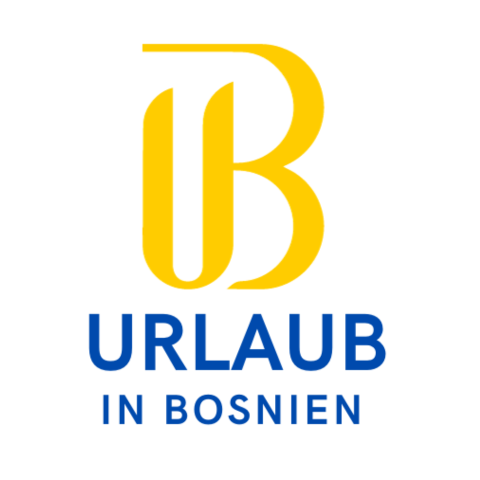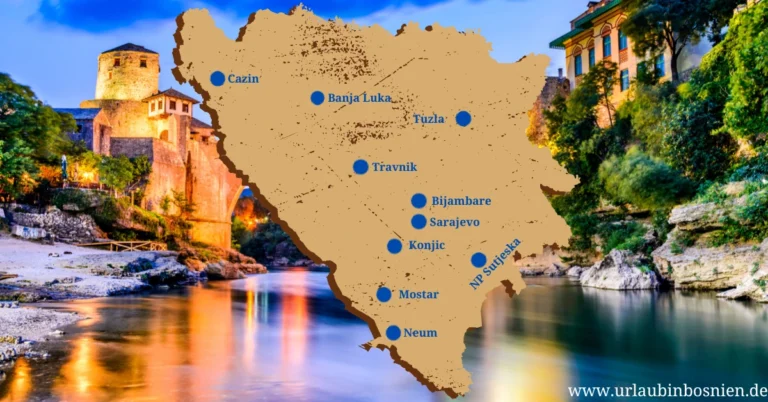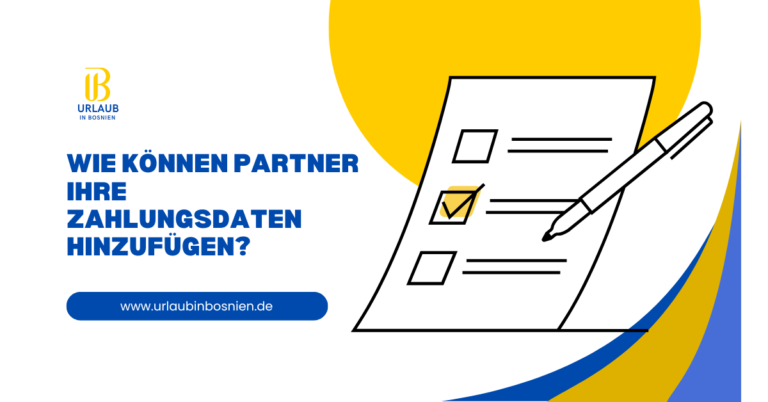How much does a holiday in Bosnia cost?
In this guide, I will give you an idea of the costs involved in a holiday in Bosnia and give you some tips on how to plan your stay. A holiday in Bosnia and Herzegovina offers impressive value for money and is perfect for travellers on a budget. Enjoy the country's beauty, taste its delicious cuisine and explore its rich culture at affordable prices. Therefore, I hope that this post will encourage you to plan a trip to this wonderful Balkan country.
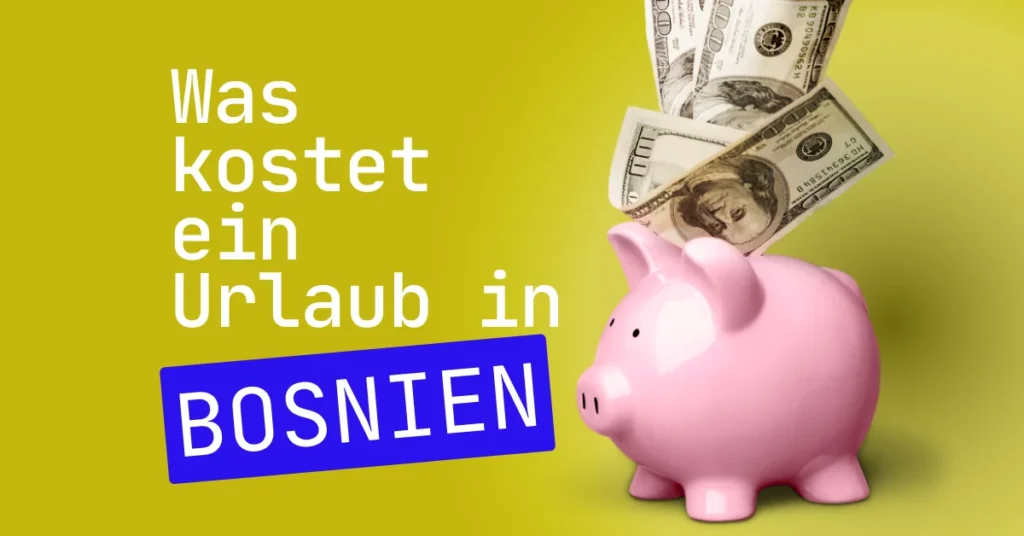
How much does accommodation cost in Bosnia?
In this section I will provide detailed information about accommodation options, their price range and factors that affect their cost. In Bosnia and Herzegovina you can choose between the following options:
- Hotelsthat offer a high level of comfort, with amenities like room service, on-site restaurants, and daily housekeeping. Hotels often have in-room safes for personal belongings (check the website and booking platform or contact the front desk). Hotel prices in Bosnia suit a wide range of travelers, ranging from budget-friendly to luxurious. Budget-friendly hotels are mid-range hotels that cost €50-100 per night, and luxury hotels cost €100-200+ per night.
So it's up to you to decide if you want amenities like soundproof rooms, minibar, tea and coffee making facilities, large work desks and LCD flat screens with extended TV programs for your business and leisure needs.
- Hostels and guesthouses are affordable options that allow you to experience the local culture and meet other travelers. Hostels offer the choice between staying in a dormitory with shared facilities or a private room. On the other hand, in a guesthouse you can expect a more private atmosphere and personalized service. The price range is between €20 and €50 per night. Many of the guesthouses also offer you a safe for personal valuables. Check the website or booking platform for this.
- Motels are affordable and convenient. They are usually located on highways and major routes, meaning they are easily accessible.
- Apartments are located outside the city on a river bank or a lake and offer unique experiences, beautiful views and privacy. These are usually apartments and villas with plenty of space in the units and multiple bedrooms. In addition to the classification in terms of amenities and service and the type of accommodation, prices are usually determined by season and location. If you come in high season (summer and autumn), prices may be a bit higher compared to months with fewer tourists. Also, accommodation in big cities or tourist hotspots is more expensive compared to that in smaller towns or rural areas. In general, vacation costs for accommodation in Bosnia are very affordable, and in most cases you will receive great service and hospitality.
How much does food cost in Bosnia?

Bosnian cuisine is a blend of several culinary traditions, combining flavors from Central Europe, the Mediterranean and the Ottoman Empire.
Due to Bosnia's geographical location and its historical background, the country has an exceptional and delicious food culture. Food in Bosnia is very affordable compared to other European countries.
In this section I will give you a rough idea of how cheap food is in Bosnia, as well as some information about traditional Bosnian cuisine. The price of food in Bosnia depends on the region. As a general rule, prices are higher in big cities and attractive places, while smaller towns and rural areas have lower food prices.
In addition, prices may change due to inflation and the time of year. You may want to seek recommendations from locals or previous visitors to find out where you can find the best value for money. Many restaurants also have an online presence where you can view the dishes on offer and prices.
As I've written before, food in Bosnia is generally cheaper than in many Western European countries. A lunch in a budget cafe or restaurant serving traditional Bosnian food can cost you between 7 and 15 euros per person.
Traditional Bosnian dishes include:
- Cevapi, small grilled minced meat sausages, often made from beef and lamb
- Pita, a pastry filled with ingredients such as minced meat, cheese or spinach
- Begova čorba, a creamy soup made from chicken, okra and various herbs and spices
- Sogan Dolma, stuffed onions with minced meat and rice, cooked in a tasty tomato sauce
The same prices apply to restaurants that offer healthy dishes such as salads, vegetarian dishes and untraditional Bosnian recipes. Prices in this type of restaurant range from 5 to 15 euros, of course it depends on the restaurant. Street food and snacks in Bosnia are even more affordable. You can find bakeries and food stalls with various Bosnian specialties and sandwiches. The price of a meal in this case is between 2 and 5 euros.
If you want to eat more luxuriously, you can consider one of the fine dining or elite restaurants, where three courses can cost more than 50 euros per person. These restaurants are usually located in attractive locations such as river or lake banks, or belong to higher class hotels.
As for drinks, you must try Bosnian coffee. It is similar to Turkish coffee, strong, dark and served in small, specially decorated cups. Bosnian coffee is known for its preparation process and cultural significance. It is often inexpensive, costing between one and two euros in cafes. Some cafes offer free sweets. The price of alcohol varies depending on the location and type, including traditional drinks and regional wines.
When it comes to the cost of your Bosnia food vacation, prices are generally fair because you get delicious meals prepared according to traditional recipes and containing high-quality ingredients.
How much do typical Bosnian delicacies cost?
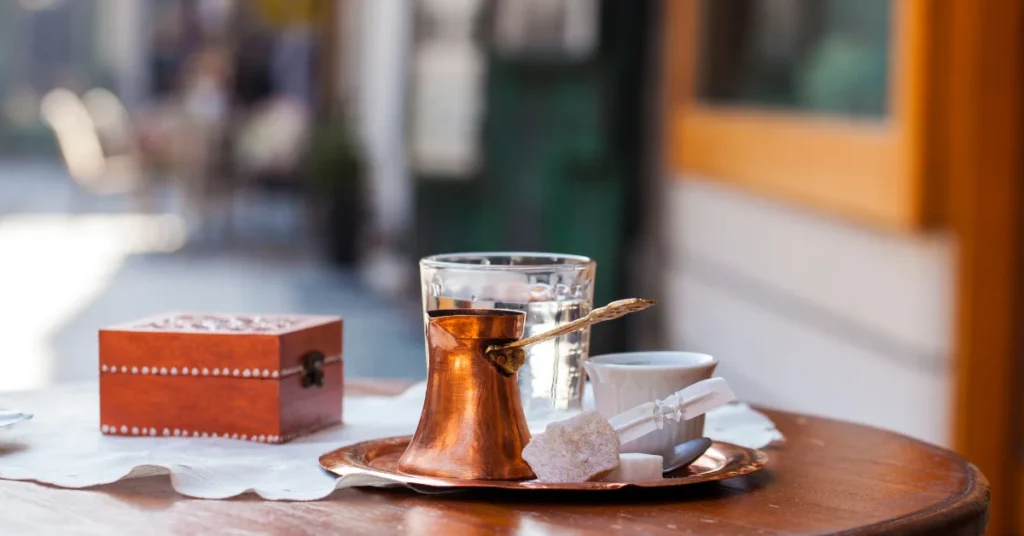
Bosnia and Herzegovina offers a variety of delicious food products that will enhance your Bosnia vacation or that you can bring back home as souvenirs. To help you budget and get an idea of the cost of a vacation in Bosnia, here are some popular foods and their prices that are often purchased in Bosnia to take back home:
- Bosnian coffee (Bosanska kafa) is a finely ground powder with an aromatic smell. You can buy high-quality Bosnian coffee blends, often packaged in decorative bags. You can also buy traditional coffee sets, including a coffee pot and coffee cups. For half a kilo of coffee, you will pay between 4 and 6 euros. As for coffee sets, you can find them between 30 and 150 euros. The more affordable sets are made of porcelain, and the more expensive ones are traditional decorative copper sets, which can be found in Sarajevo and Mostar.
- Bosnian delicacies include traditional sweets and desserts such as baklava, tufahija or hurmašice. You can buy these sweets in local candy shops and markets. The prices of these sweets range from 7 to 23 euros per kilo.
- Bosnian pies are another part of the culture that you can take with you. Some specialty shops and bakeries vacuum pack the pies in portions, which is convenient. Prices for different types of pies range from 8 to 10 euros per kilo.
- Bosnia has an excellent beekeeping culture that produces honey of the highest quality. There are also other types of honey such as acacia and flower honey. It is important to note that you must buy from a beekeeper who produces high quality local honey. The price of honey is around 15 euros per kilo.
- Bosnia and Herzegovina has a growing wine industry, and you can find local wines from different regions. Many of the wineries offer tours and tastings, so you can include them in your trip. The price of Bosnian wine varies between 5 and 60 euros per 0.75 l bottle.
Travelling within Bosnia
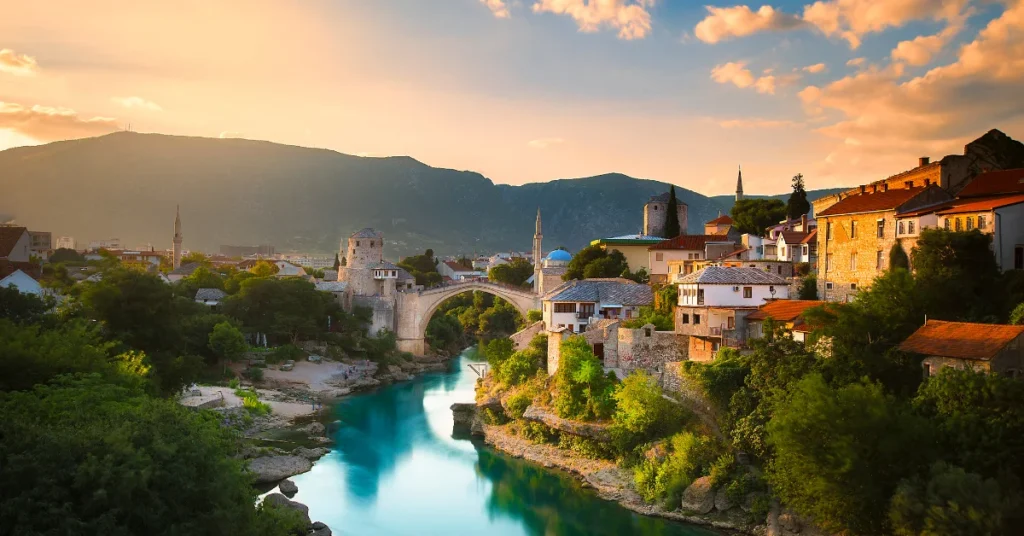
There are different ways to travel around Bosnia and Herzegovina, but it is important to note that accessibility may vary in different regions. Although infrastructure has improved over the years, there are still some parts with difficult accessibility. Most cities and areas are connected by road networks, and private cars are the main means of transport. While main highways and roads are generally in good condition, there are some rural and hilly regions with narrow or unpaved roads, so be careful on these roads.
If you are coming by car, the main cost is petrol, which currently costs around 1.446 Euro per litre in Bosnia. Of course, if you decide to rent a car, you will have to add this cost to your road trip as well. And I would recommend this option if you want to visit some of the lesser-known regions of Bosnia and Herzegovina. In many cases, renting a car can be the most cost-effective method of transport. While some buses run between cities, it is not uncommon to find it difficult to get to attractions outside of the cities.
Holiday costs for sightseeing and activities in Bosnia
There are many things to see and do in Bosnia, such as historical sites, stunning natural parks and charming towns. Although the entrance prices vary, it can be found that most of the attractions are affordable, but of course you have to take them into account when planning Bosnia vacation costs.
Exploring the historical streets and sights in Bosnia is usually free, but admission to historical museums can cost between 3 and 15 euros, depending on the museum.
Hiking and trekking through the natural beauties of Bosnia is generally free, with some exceptions. For example, visiting some natural attractions such as the Kravice Waterfalls near Mostar requires an entrance fee of around 5-10 euros. Rafting tours on the Neretva or Una can cost between 30 and 60 euros for a full-day experience. There are also kayaking tours on the Trebizat for around 40 euros per person. Guided cycling tours including bike rental cost between 30 and 50 euros per person.
As for winter activities, in winter ski resorts such as Jahorina or Bjelasnica, the cost of the ski pass is usually between 20 and 40 euros per day.
